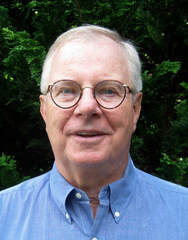 Peter gow Peter gow I enjoy school strategy statements. These days they take the form, variously, of strategic visions, strategic priorities, or the tried-and-true strategic plans. Most of these are pretty interesting, although one can fault the form as being perhaps a little bit too standardized, like Brill Building hit songs of the 1960s. This makes some sense, as every school has to balance its dreams and aspirations around resources, programs, and identity, the uber-categories of strategic statements. Plenty of people on the academic side of schools look at their own strategic visions/plans/whatevers and think, “What does this actually mean?” or “Why do we have to change that?” As an agent of change in my time I have scoffed at such skeptics, having in mind the end point of whatever the vision might have been, understanding that we needed to do things better—more effectively, more efficiently, more in harmony with those well accepted principles of 21st-century education. We needed to fix things, align things, re-tool and re-imagine things. Lately I’ve been reading Learning to Improve: How America’s Schools Can Get Better at Getting Better by Anthony Bryk, Louis Gomez, Alicia Grunow, and Paul LeMahieu. There are lots of great things about this book, perhaps best of all the authors’ insistence on suggesting that much of the strategic program development work schools are undertaking ought to be framed not as “school change” or “program improvement” or “innovation” but rather under the rubric of what Bryk & Co. call improvement science. It’s cool, and kind of sobering, to think of managing improvement as a scientific endeavor, and Learning to Improve offers a pretty detailed process for implementing an improvement science model for planning and managing program modifications or upgrades. I’d call it way more than recommended reading; it ought to be a requirement. It is demanding reading simply because one is compelled to read it very seriously. What does this all have to do with strategic somethings? The very first step in “improvement science” is what so many strategies forget, whether they are concocted in the moment to address a pressing problem or handcrafted under the aegis of artisanal planning gurus after months of comprehensive research and innovative thinking—or sometimes the solvers decide this step is so self-evident as to need no analysis or expression. Ironically, this step often echoes the skepticism of the “why fix it if it ain’t broken?” types. It’s defining, precisely and clearly, the actual problem that you wish to solve, the question you need to answer. Maybe the implied question often really is as simple as “Why aren’t we keeping up with Rival Schools A, B, and C?” or “How can we use technology to teach more effectively?” But I think that the real questions behind these questions are usually much, much deeper, and Learning to Improve offers a sequenced and multi-perspective method for breaking down these large and general questions into smaller frameworks that can be analyzed so that responses can be devised, tested, and improved—like science. We can stipulate to the pandemic nature of real and urgent questions in our schools that lie within the bigger questions, questions so urgent and pressing that we are often afraid to address them at all, like “Why do our students of color underperform our white majority students?” or “Why do some teachers use technology well and others not?” or “Why do we keep losing high-scoring female applicants to Rival School B?” These questions can all be restated in “How might we?” form and thus invite focused and creative pilot interventions that could have enormous repercussions in addressing the bigger, more nebulous but related questions that strategic plans and visions beg. Learning to Improve gives us concrete models for a multi-step model of improvement science, but simply demanding from the get-go that we discipline ourselves to carefully define the questions or problems our strategies are supposed to address is a pretty important idea in itself. To speak to the skeptics, mostly we do know what is broken in our schools, but we have not always been very good at articulating this or at holding ourselves accountable for fixing it. I’ve been musing on this issue with Jonathan Martin, and together we’re going to make this issue of “defining the problem” and then developing systemic ways of addressing it a key theme of our work together at the upcoming Academic Leaders Retreats for the Independent Curriculum Group. (Click on the links to learn more about and register for these events, which will be held in Rhode Island and New Mexico.) Especially for the middle managers and academic administrators so often charged with making strategic visions come true, digging backward into the elements of plans and priorities and then breaking down steps toward building comprehensive answers is a daunting task. We’d like to help people feel more equipped to do this work and to help schools succeed at achieving their strategic dreams.
0 Comments
Leave a Reply. |
Don't miss our weekly blog posts by joining our newsletter mailing list below:AuthorsBrad Rathgeber (he/him/his) Archives
July 2024
Categories |

 RSS Feed
RSS Feed